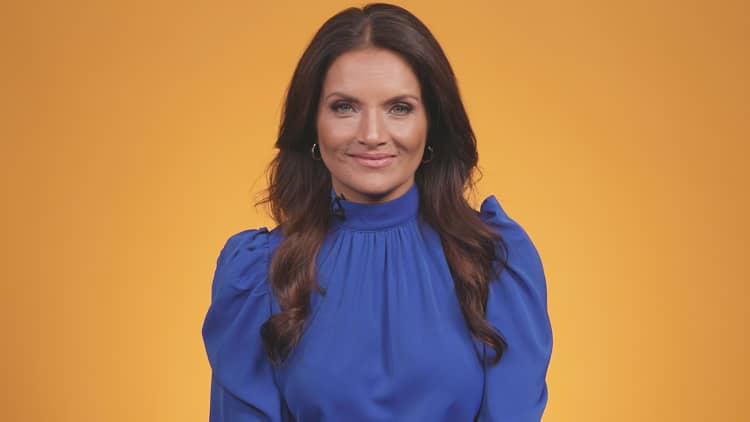Every small child gets anxious sometimes. But when your kid is panicking, there’s a common two-word phrase you should never utter: Calm down.
That’s according to Rachel Romer, CEO and co-founder of education assistance benefits company Guild, who’s a mom to two children. For kids especially, she says, calmness is best taught through demonstration.
“I’m in the middle of parenting two little 4-year-olds, and I think about when they are anxious, saying ‘calm down’ is about the worst thing you can tell a 4-and-a-half-year-old,” Romer recently said on Guild’s “Opportunity Divide” podcast, in an episode featuring leadership researcher Brené Brown and Wharton organizational psychologist Adam Grant.
Brown and Grant agreed. Saying “calm down” doesn’t validate the child’s emotions or help them understand their feelings, and can even unintentionally come across as dismissive, they said.
Managing an emotion like anxiety is a complex task, Grant added, recalling a 2014 published dissertation in the Journal of Experimental Psychology by a researcher named Alison Wood Brooks.
“What she found was, when you ask people, ‘What do you do when you’re anxious and what do you tell other people to do?,’ [more than 80%] of people said ‘calm down,’ but they couldn’t do it, because we all know anxiety is an intense, highly activated emotion, and it doesn’t just go away,” Grant said.
The trio recommended two exercises to help children better manage their heightened emotions.
Do controlled breathing together
First, practice breathing together.
“Sometimes, without even telling [your kids] you’re doing it, if you start to sync your breathing with them … you create that space” for them to work through their emotions subconsciously, said Romer.
This strategy can work for adults, too. Brown said she’s learned breathwork techniques such as “box breathing” and “tactical breathing” by taking yoga classes.
“Anxiety is a very contagious emotion,” Brown said. “Calm is also contagious.”
These methods “prepare your physiology” and allow you to relax in the moment, Harvard-trained psychologist Daniel Goleman told CNBC Make It last month. “This actually shifts your physiology from sympathetic nervous system arousal, which is the stress and anxiety mode, to parasympathetic, which is the relax and recover mode,” Goleman said.
Reframe anxiety as excitement
Second, reframe anxiety as excitement.
“What [Wood Brooks] found was, instead of trying to calm down, it was easier to reappraise anxiety as excitement and say, ‘Look, anxiety involves uncertainty. Yes, it’s possible something bad might happen, but it’s also possible something good might happen,'” Grant explained.
In that study, people conducted a variety of anxiety-inducing tasks, such as public speaking. Subjects who were told to “get excited” were more confident and collected than those who were told to “calm down.”
Parents can do a similar exercise with their kids. While talking to your child, switch phrases such as, “I know you’re anxious, but…,” or “Let’s try to calm down,” to “I know you’re excited, and…”
The subtle tweak can make kids happier and help them be in the “best emotional space possible,” Grant added.
DON’T MISS: Want to be smarter and more successful with your money, work and life? Sign up for our new newsletter!
Get CNBC’s free Warren Buffett Guide to Investing, which distills the billionaire’s No. 1 best piece of advice for regular investors, do’s and don’ts and three key investing principles into a clear and simple guidebook.


